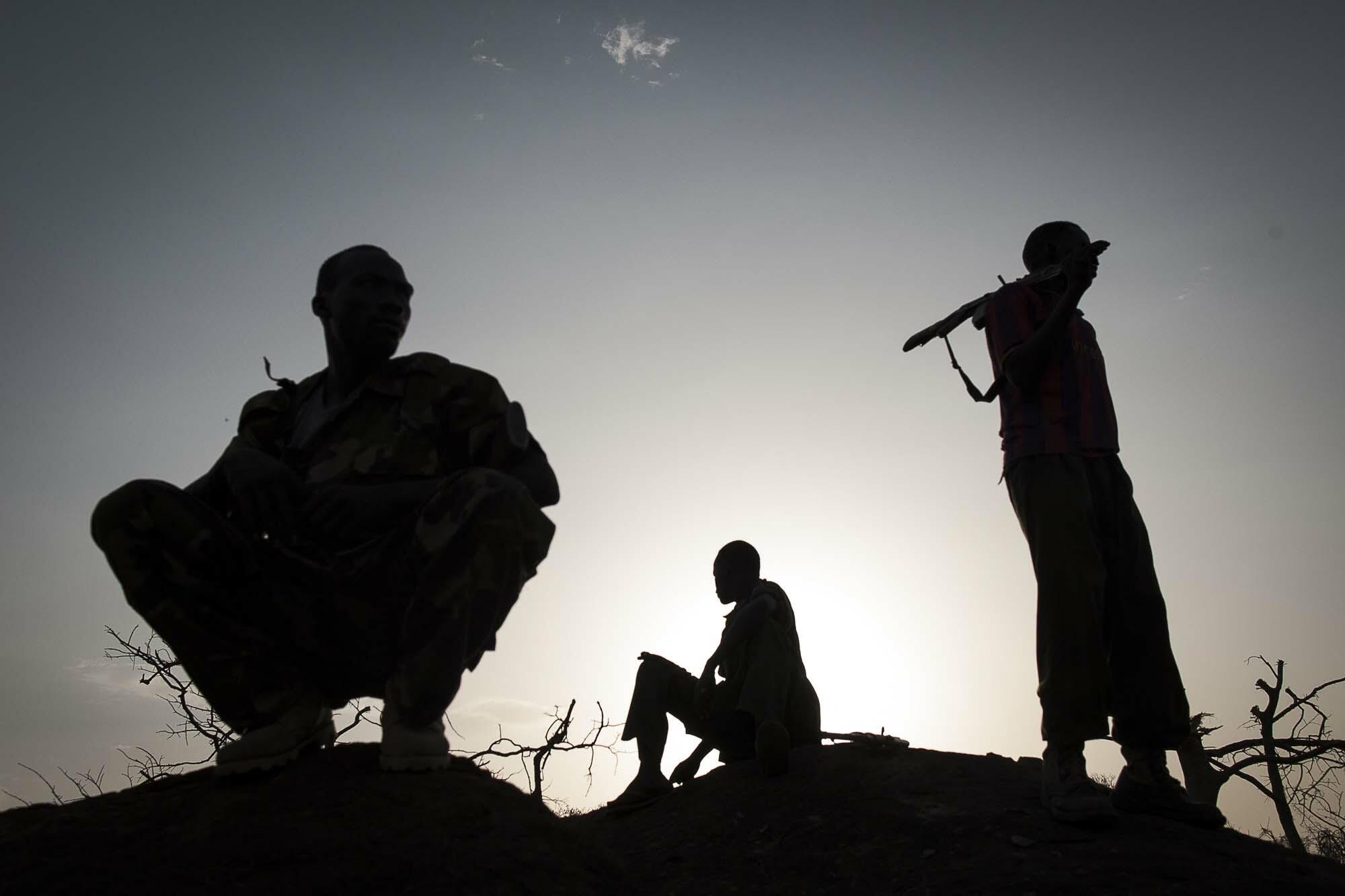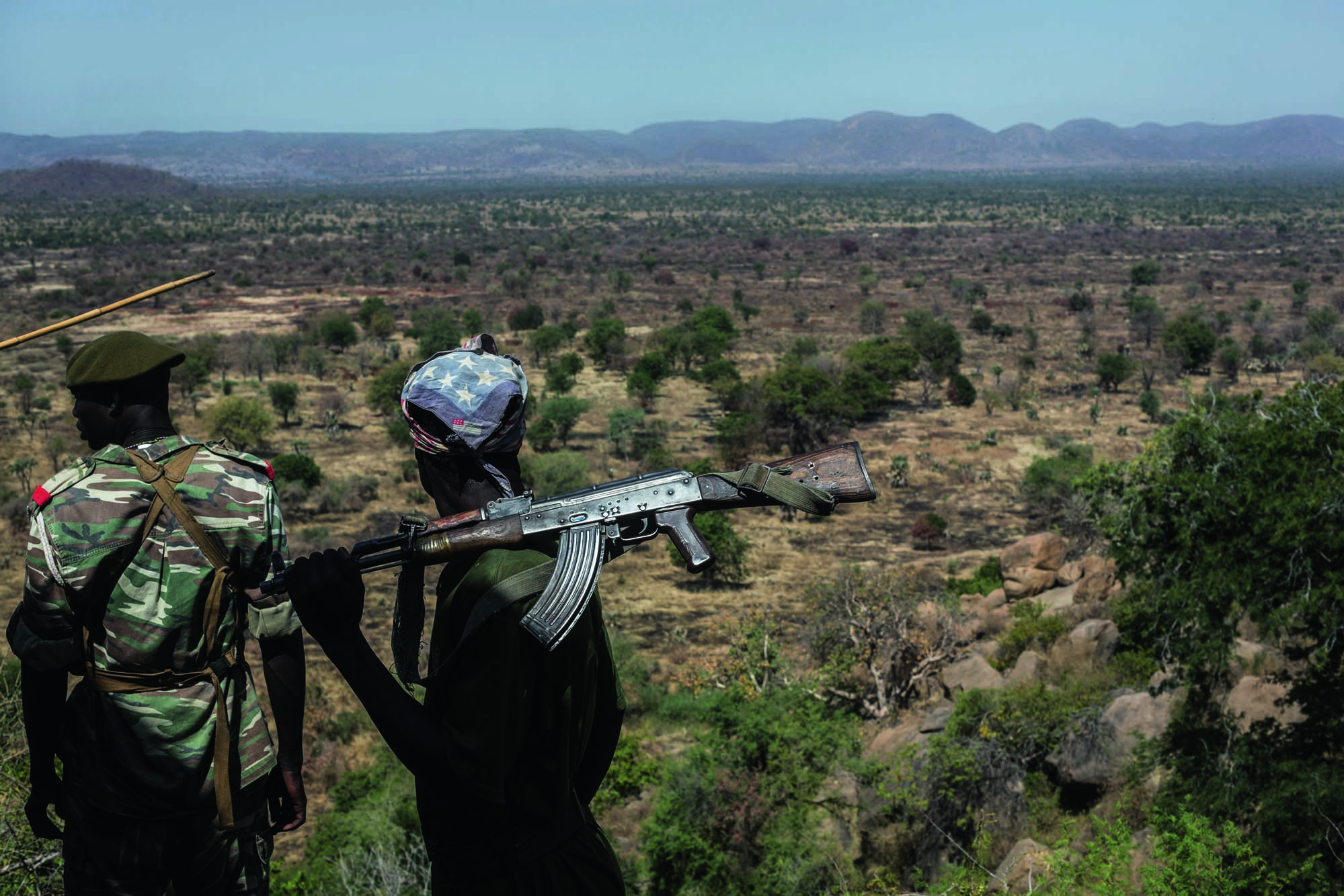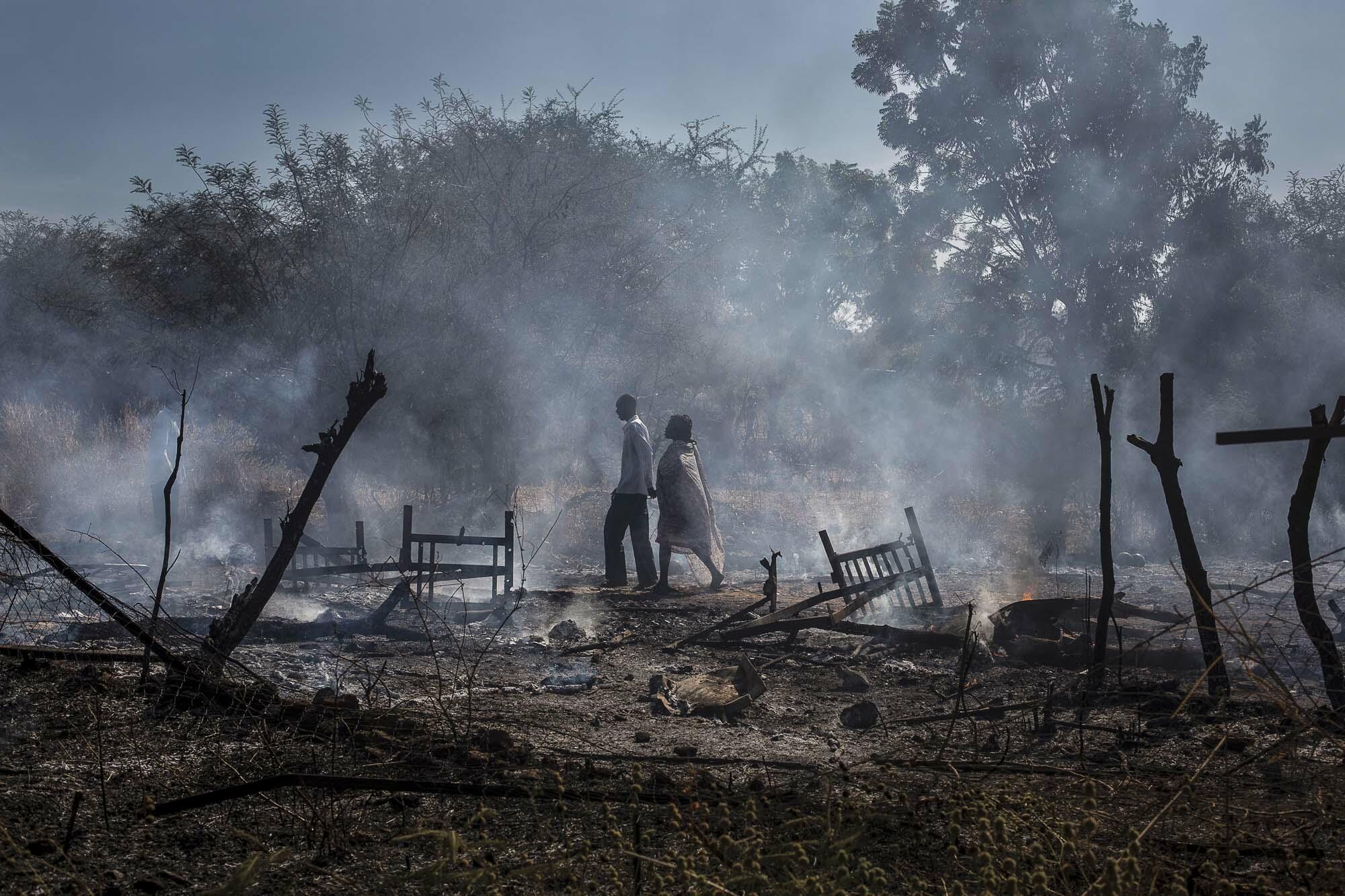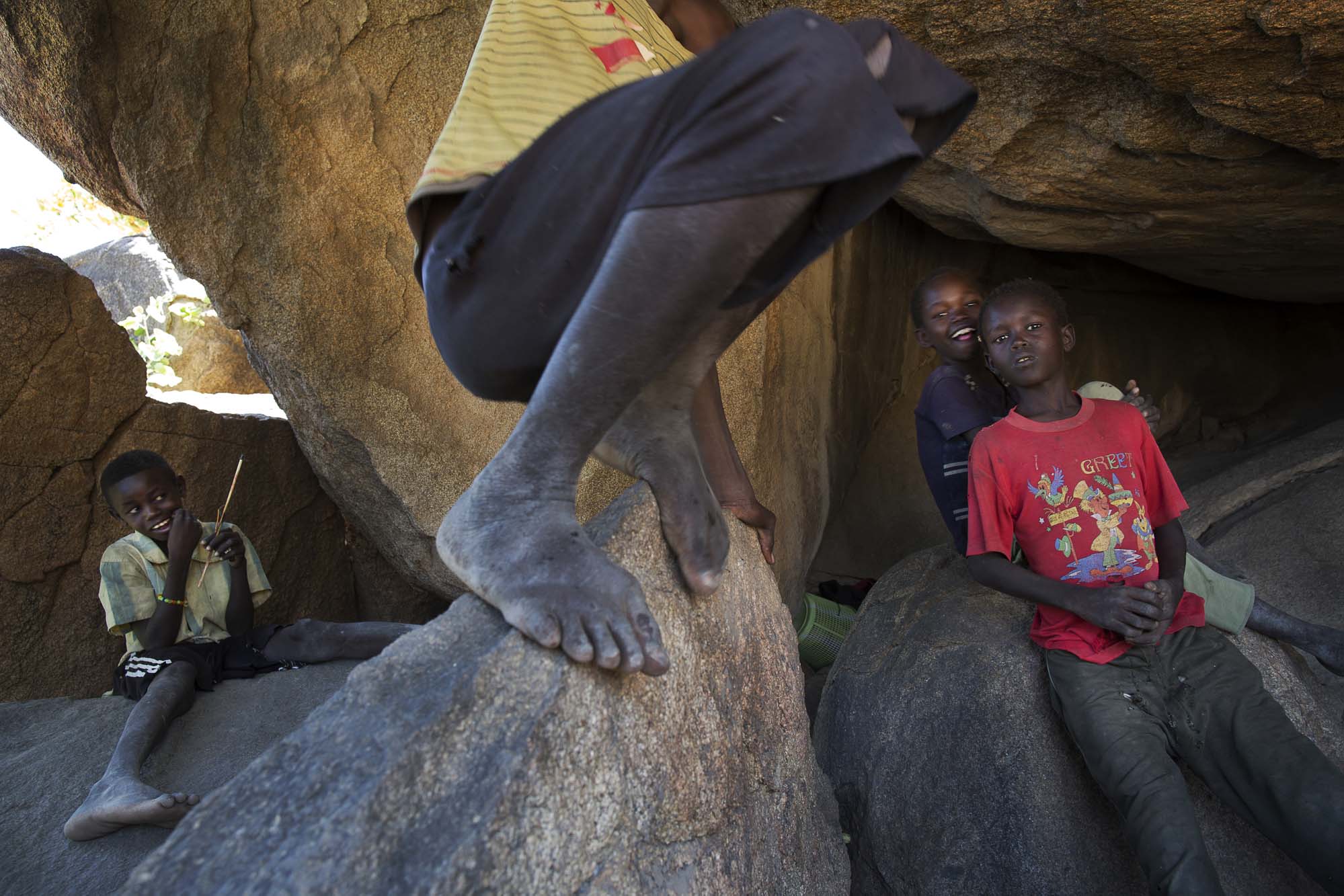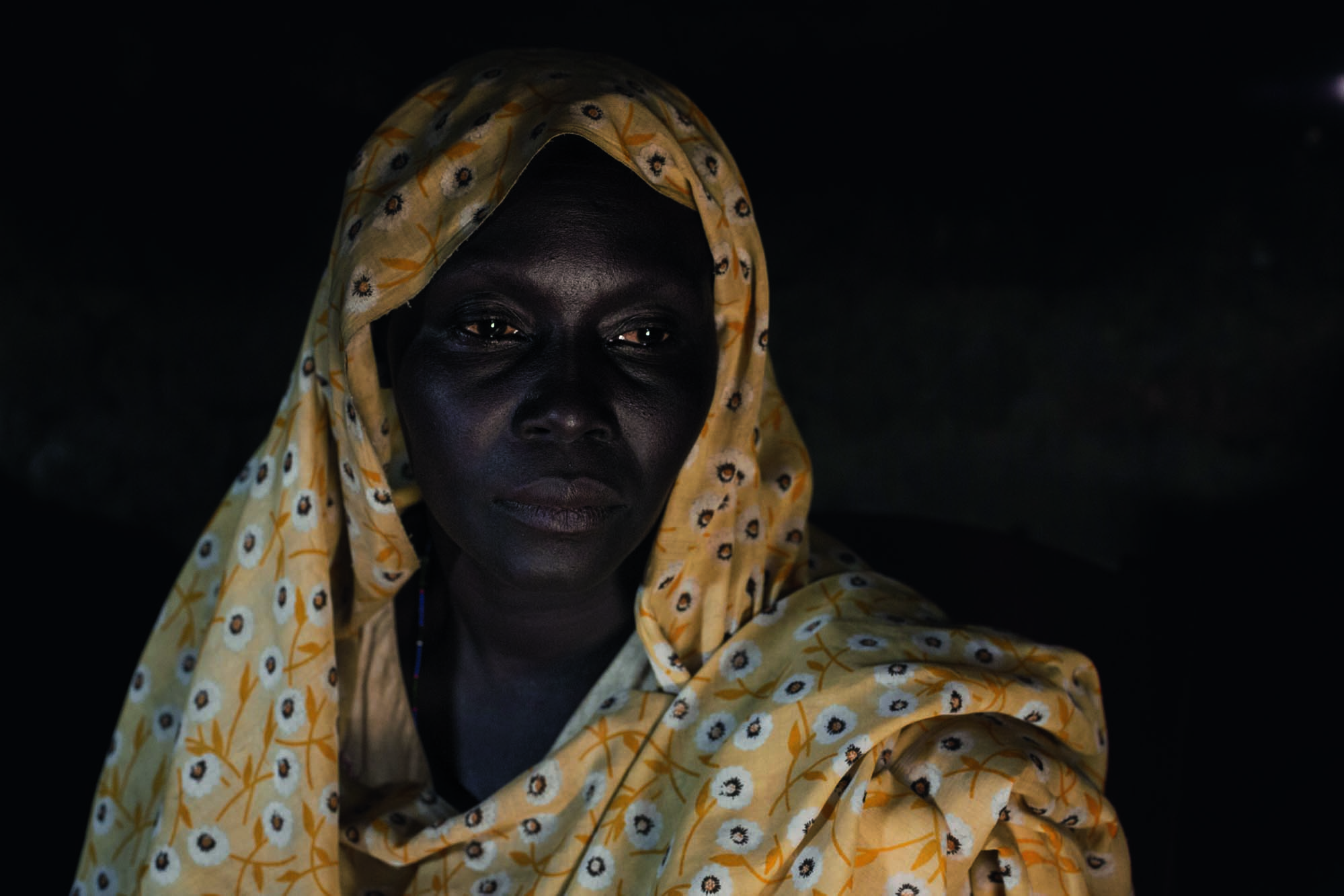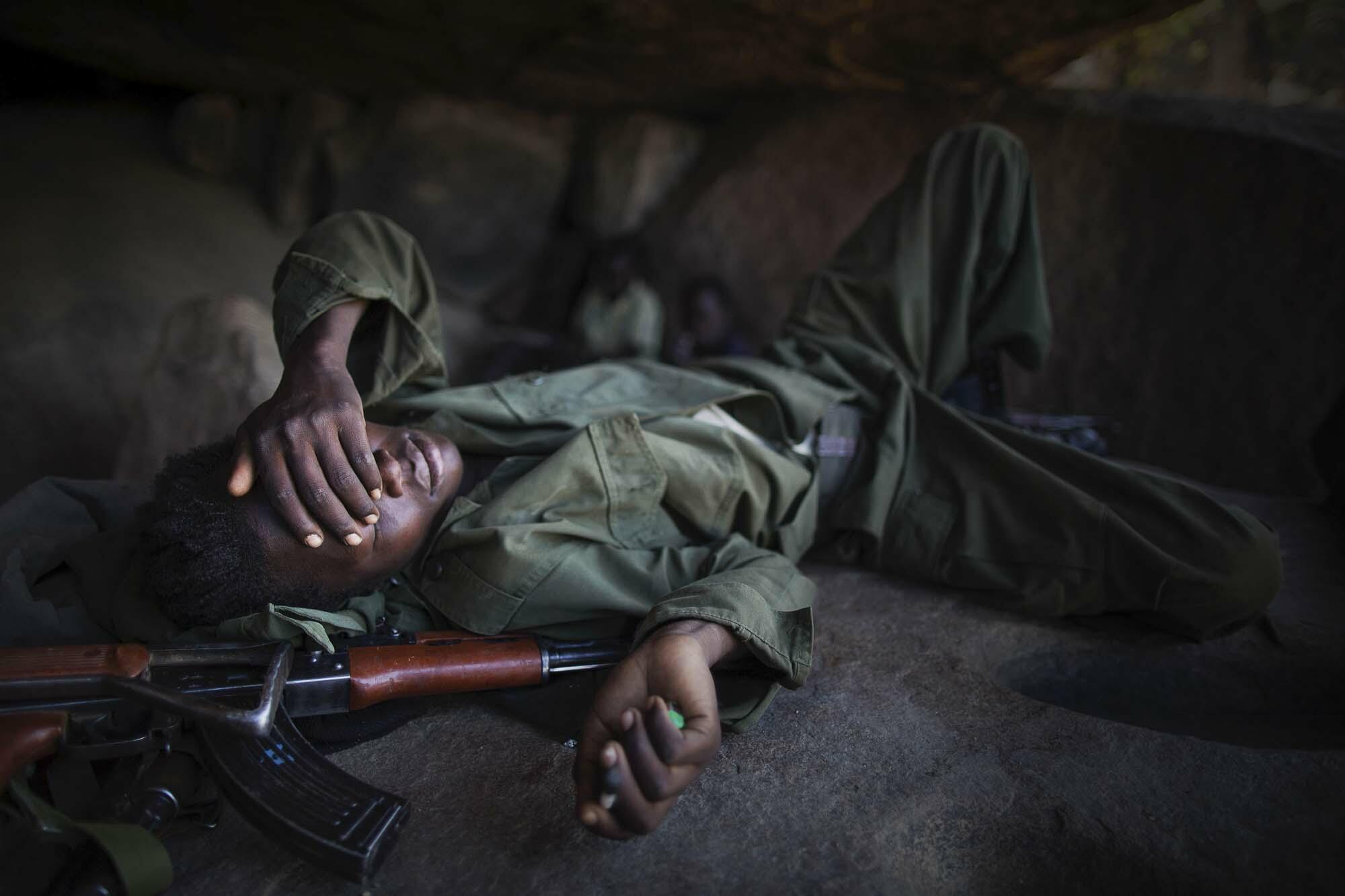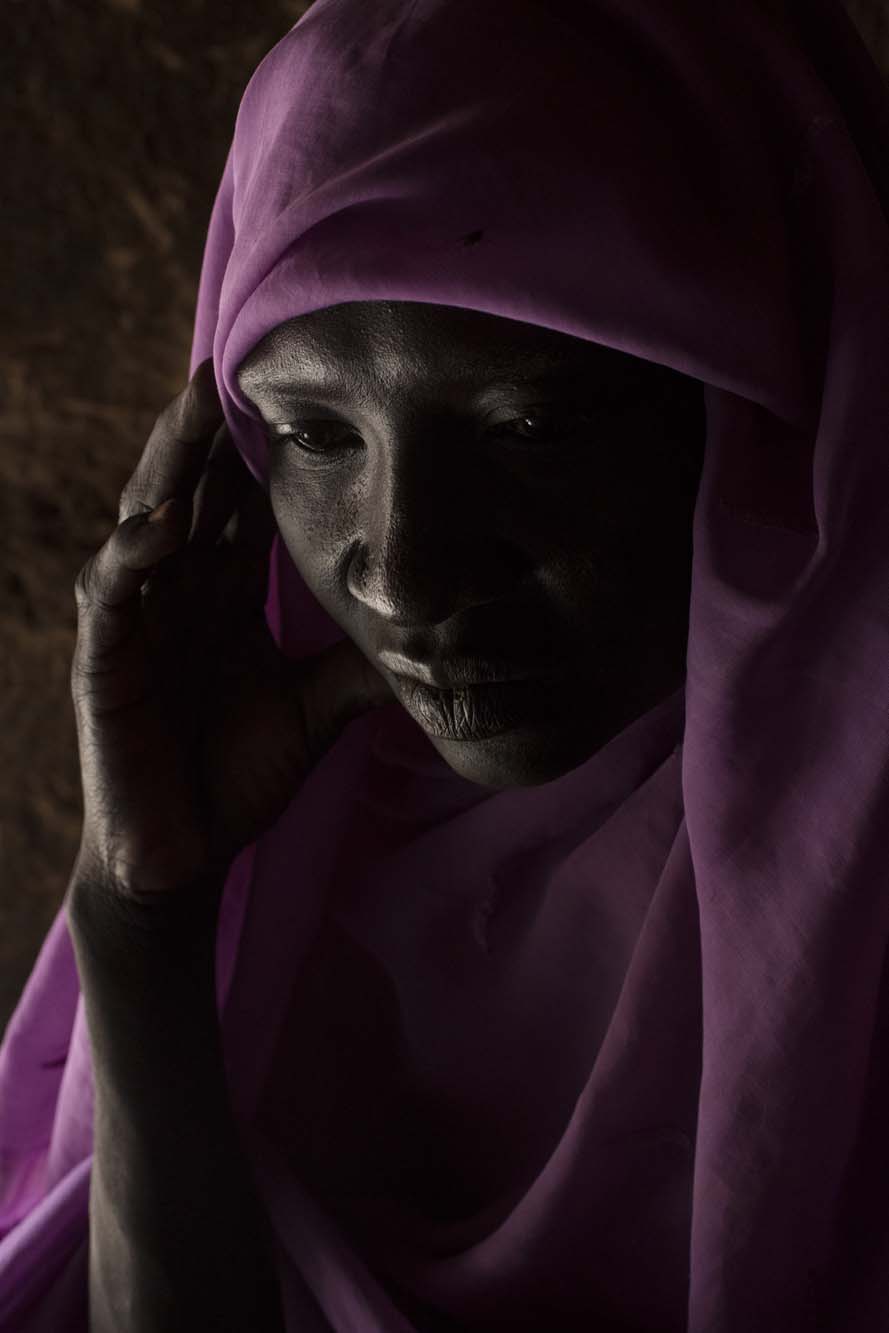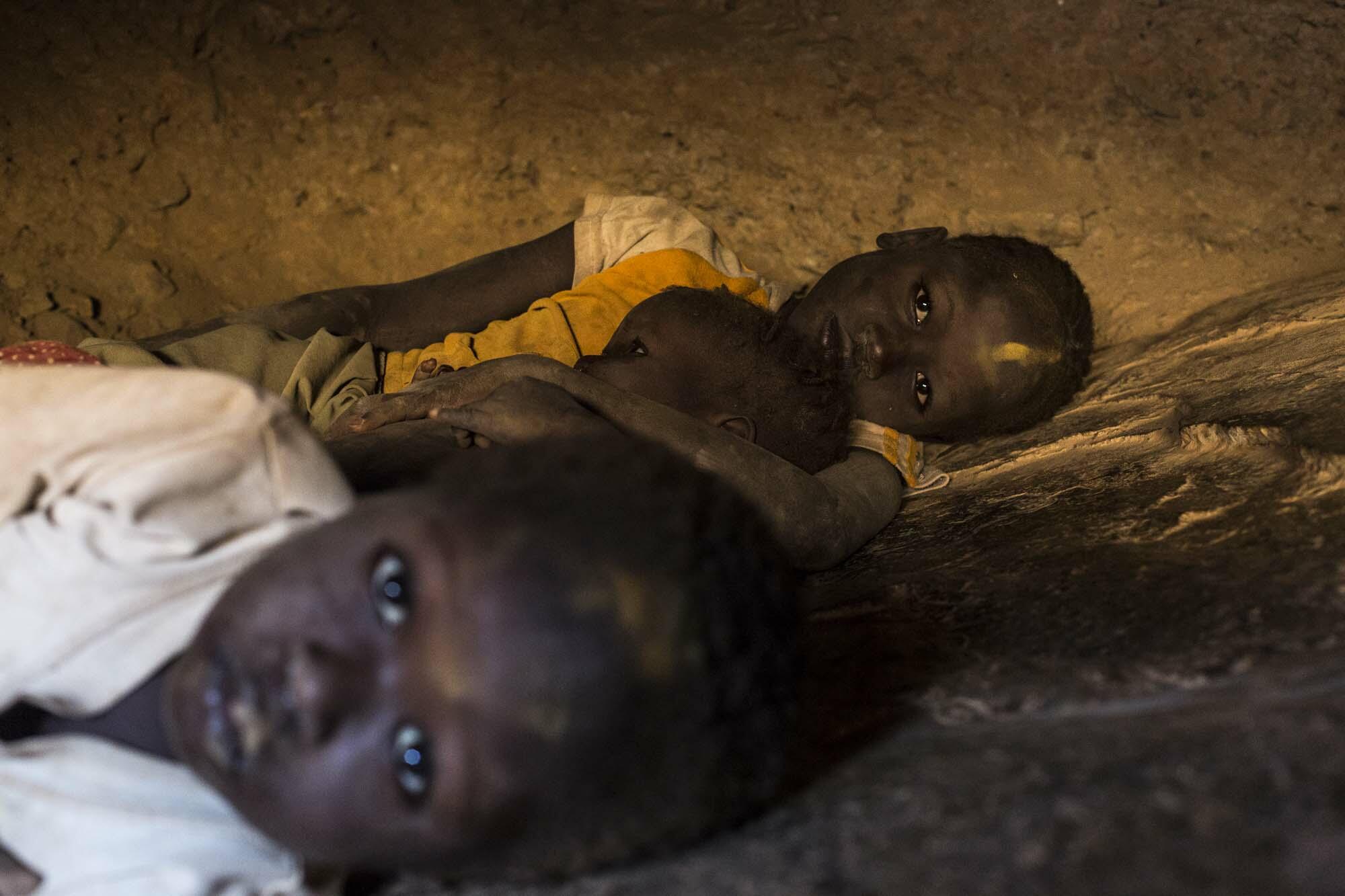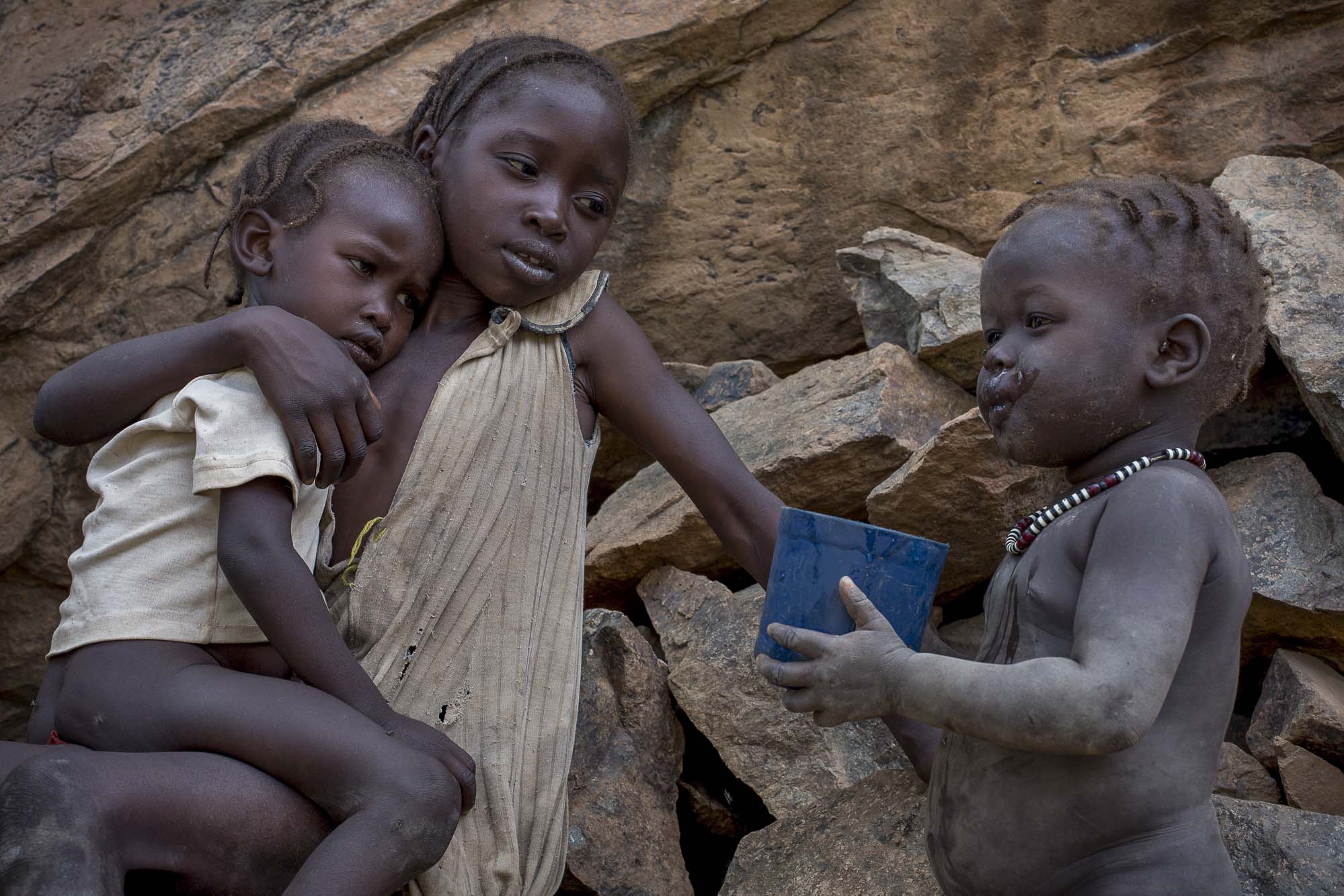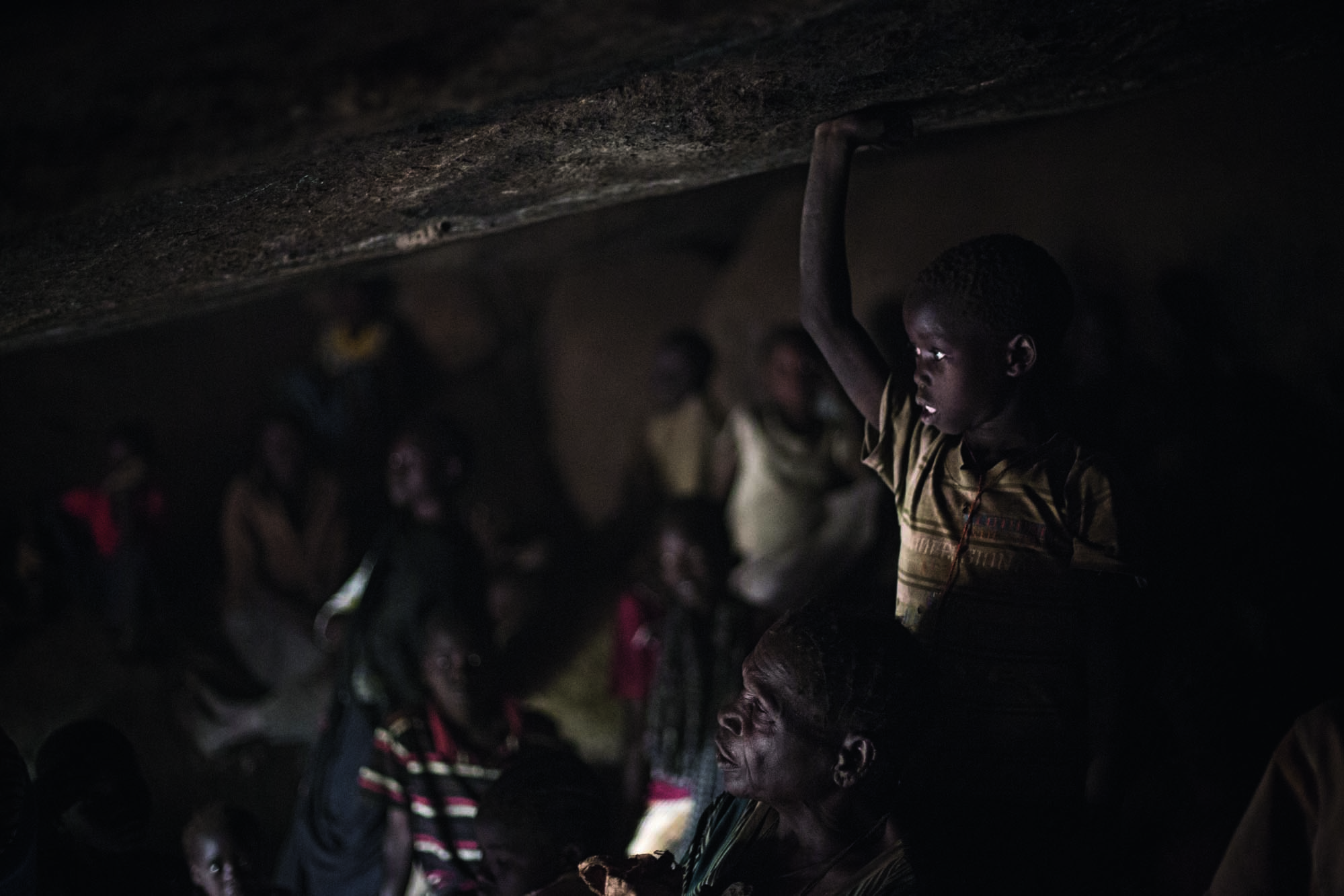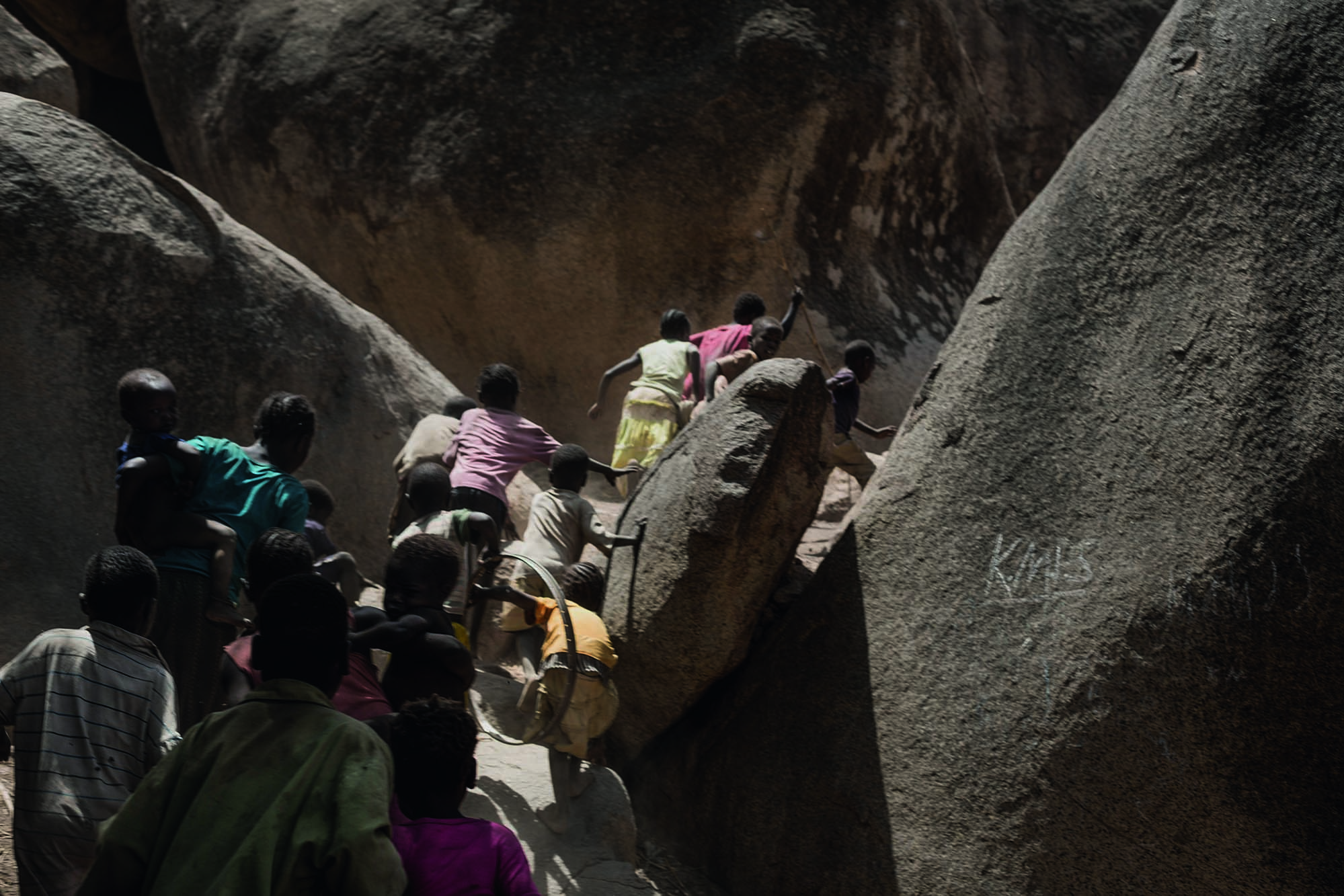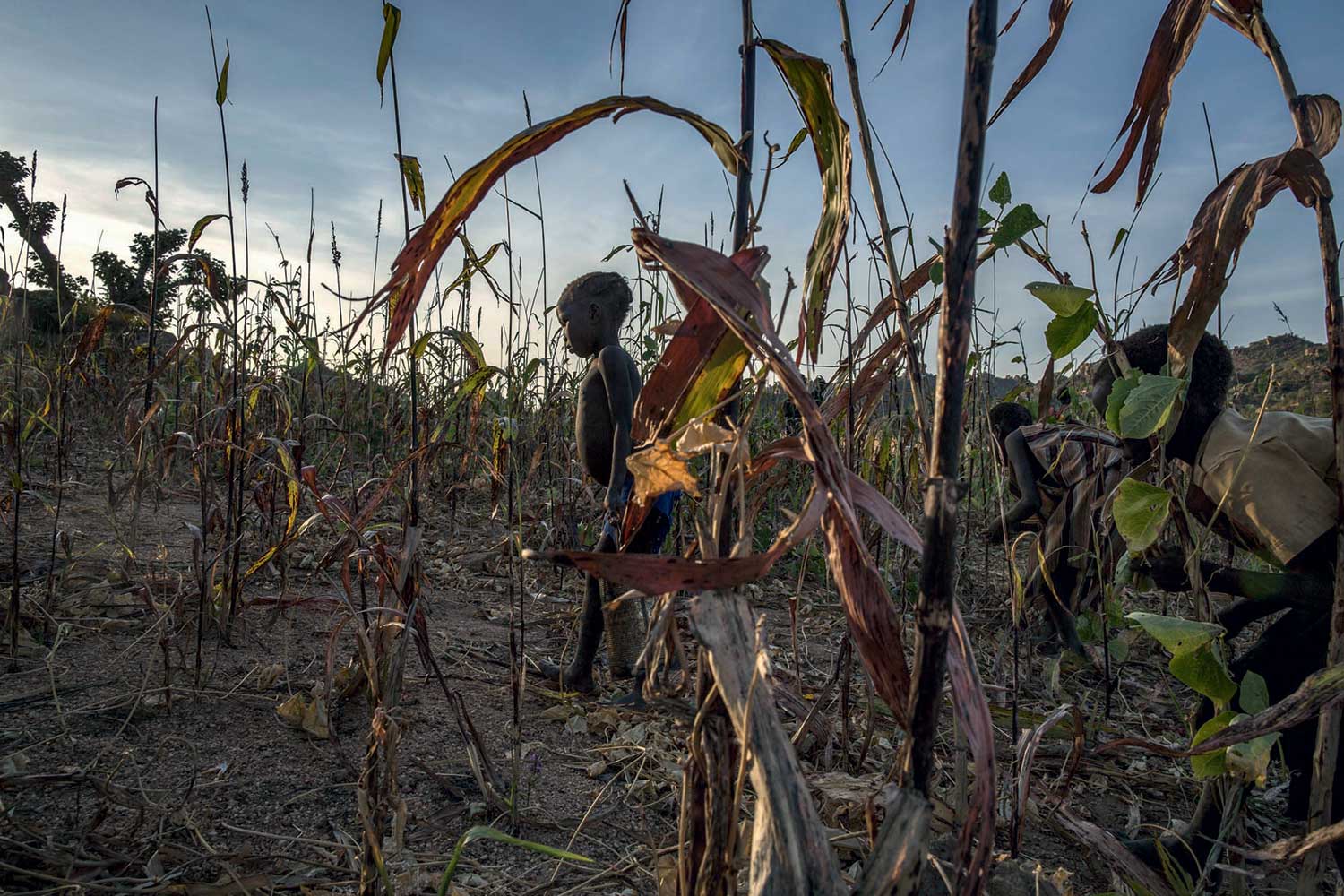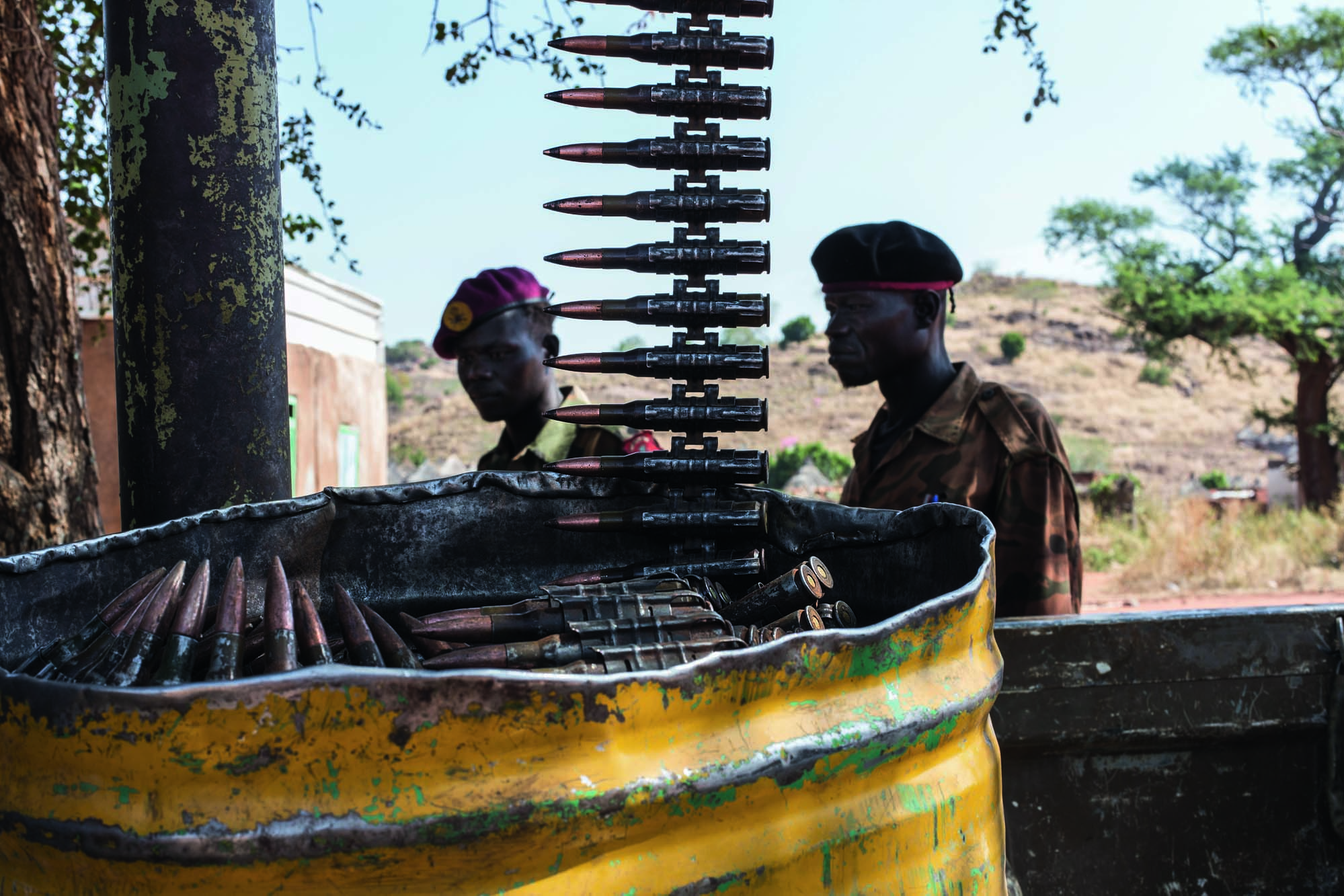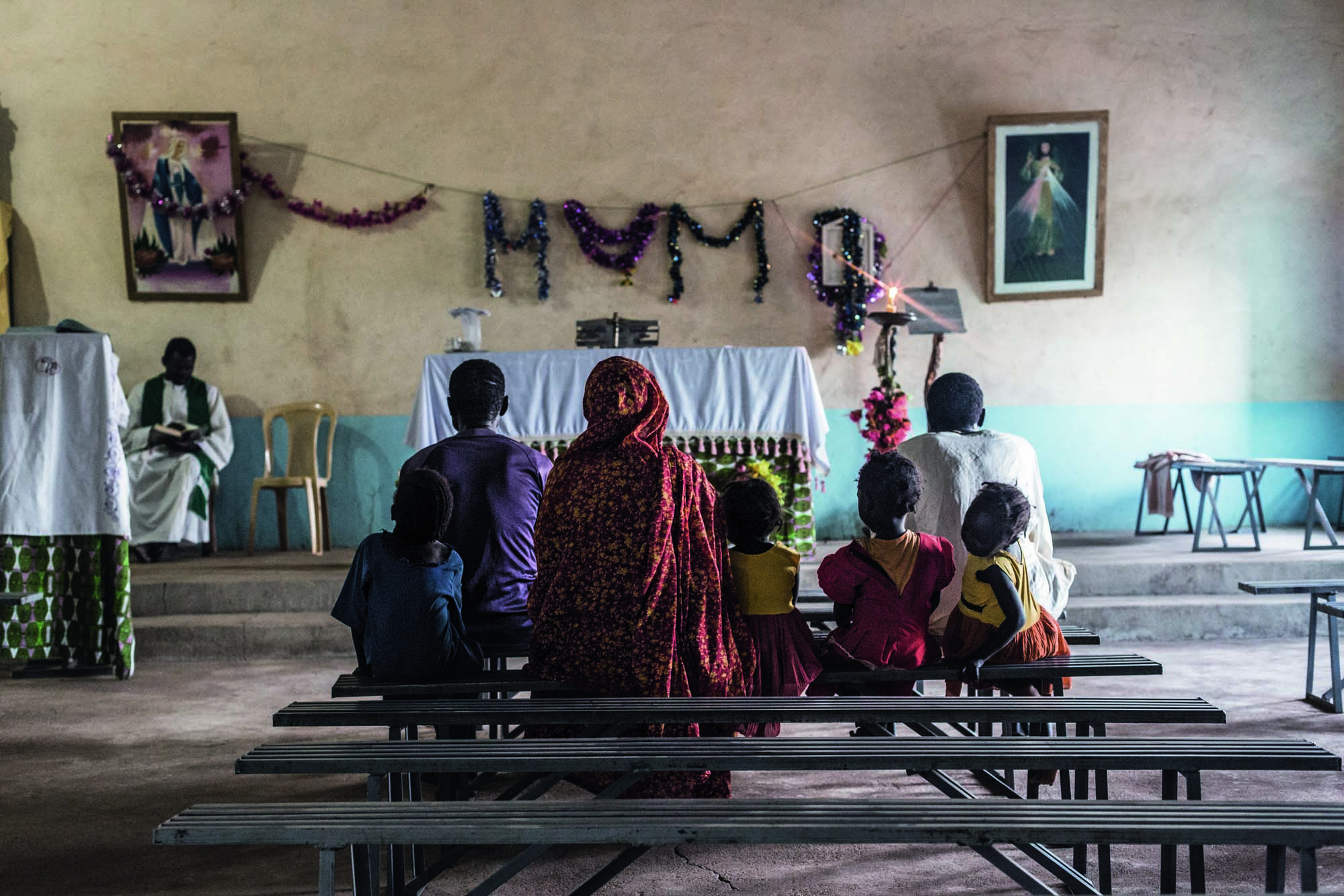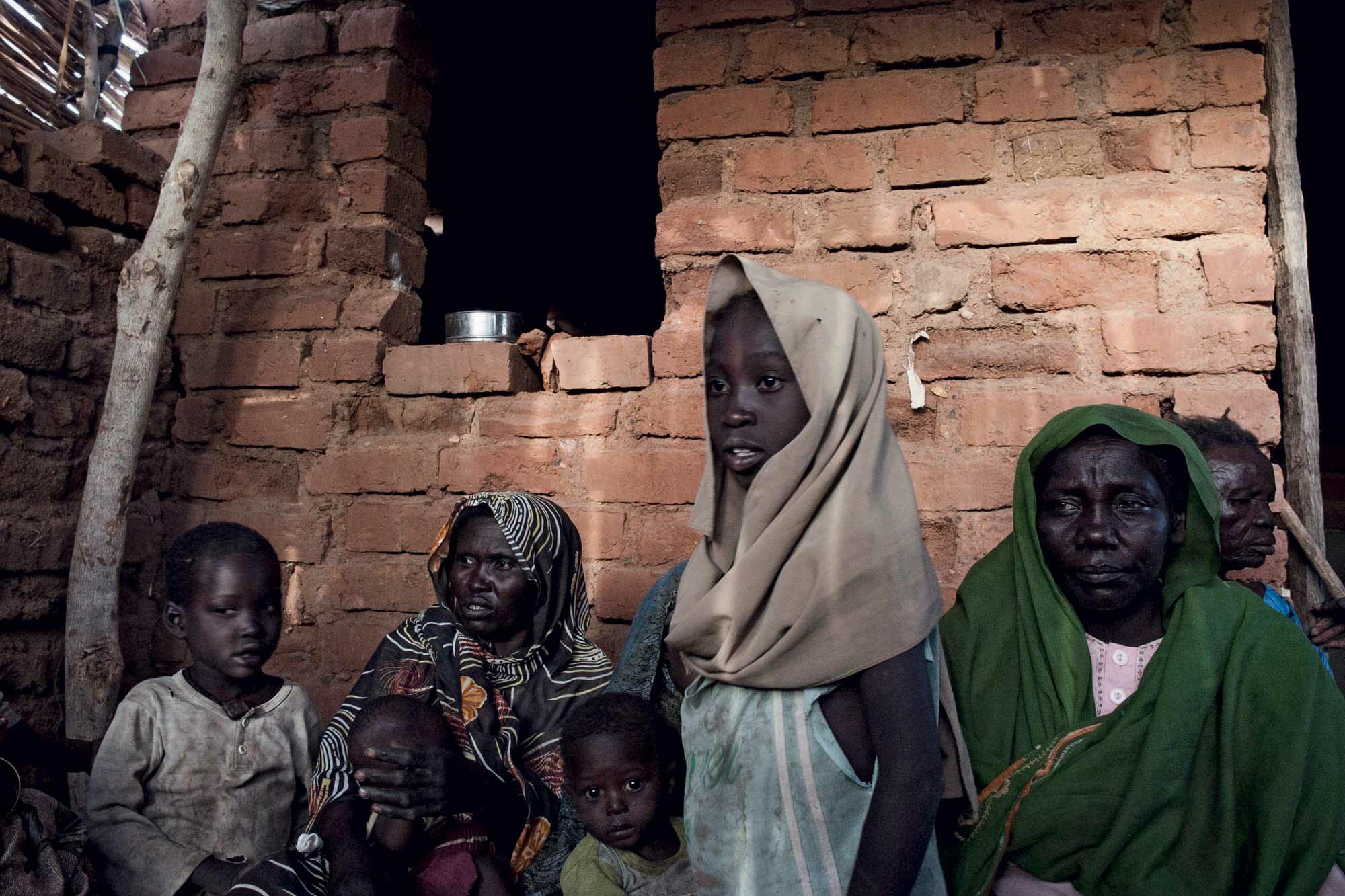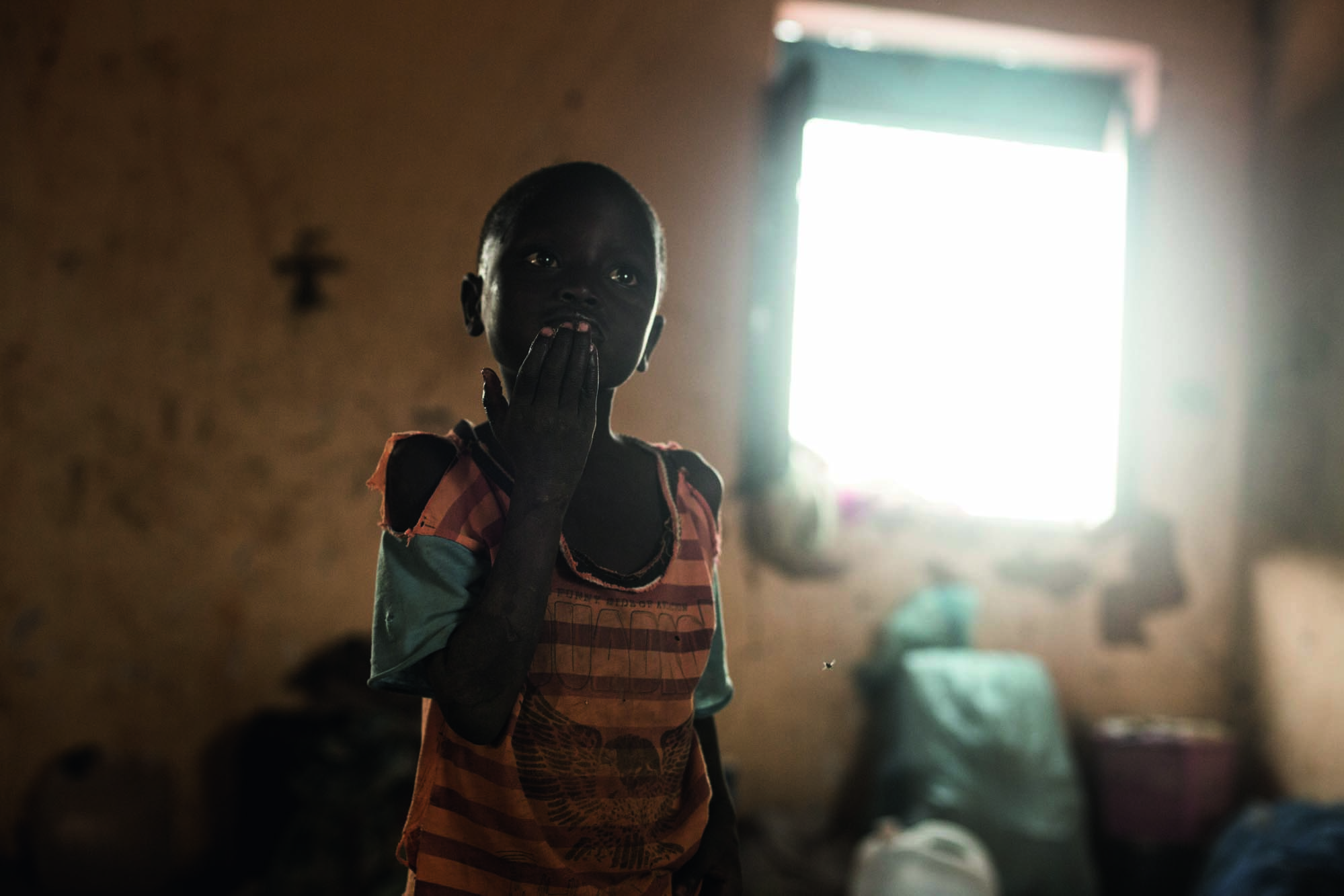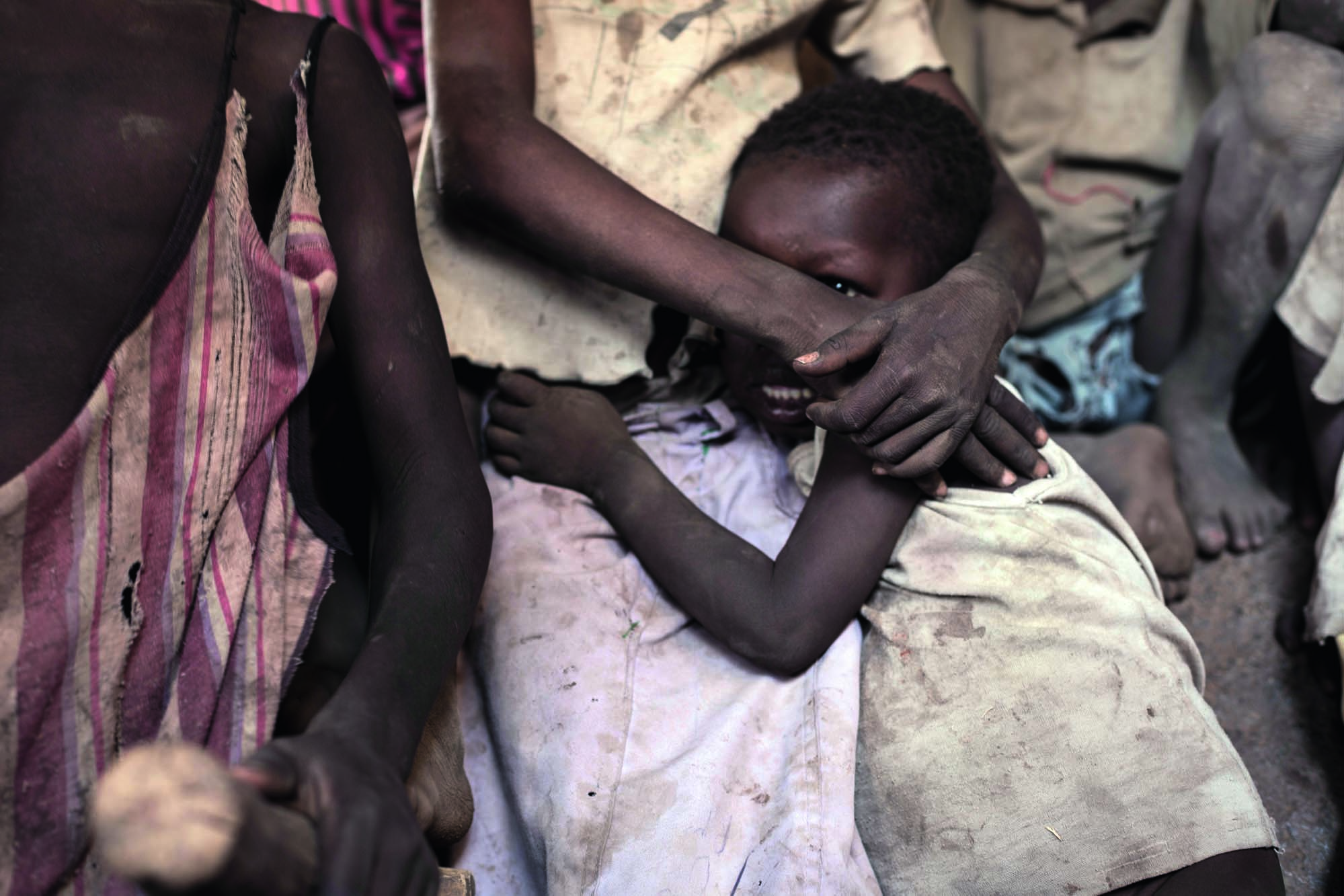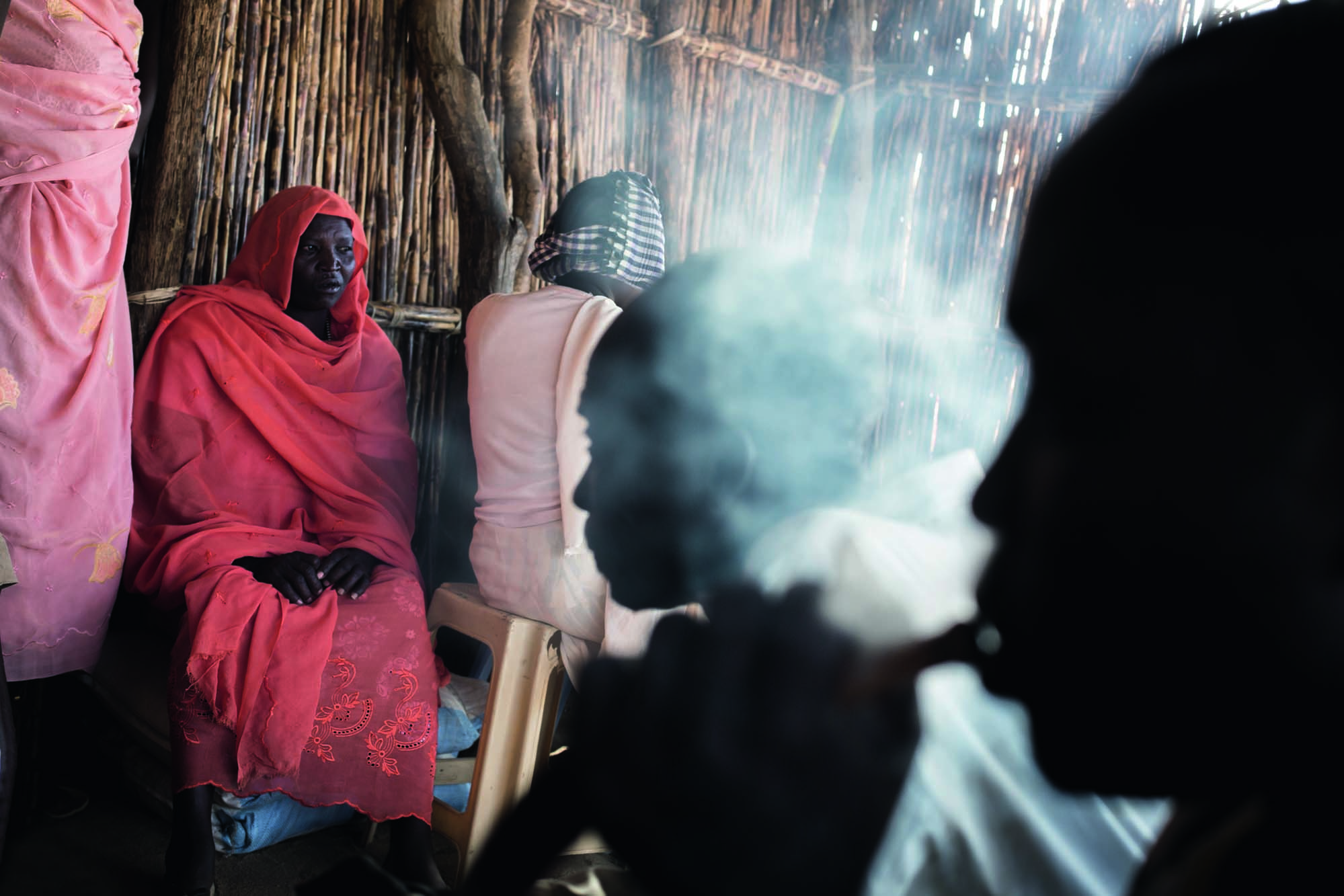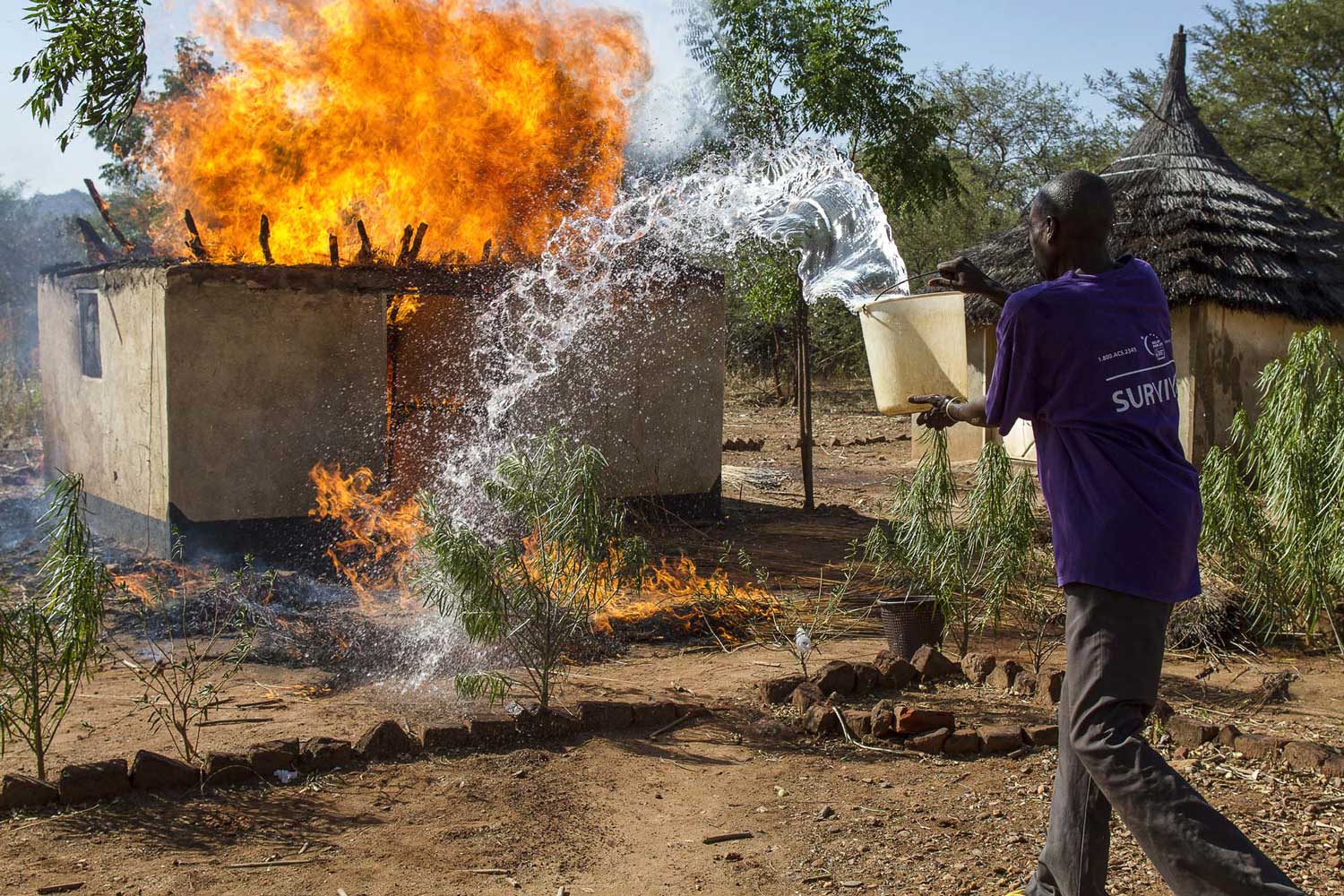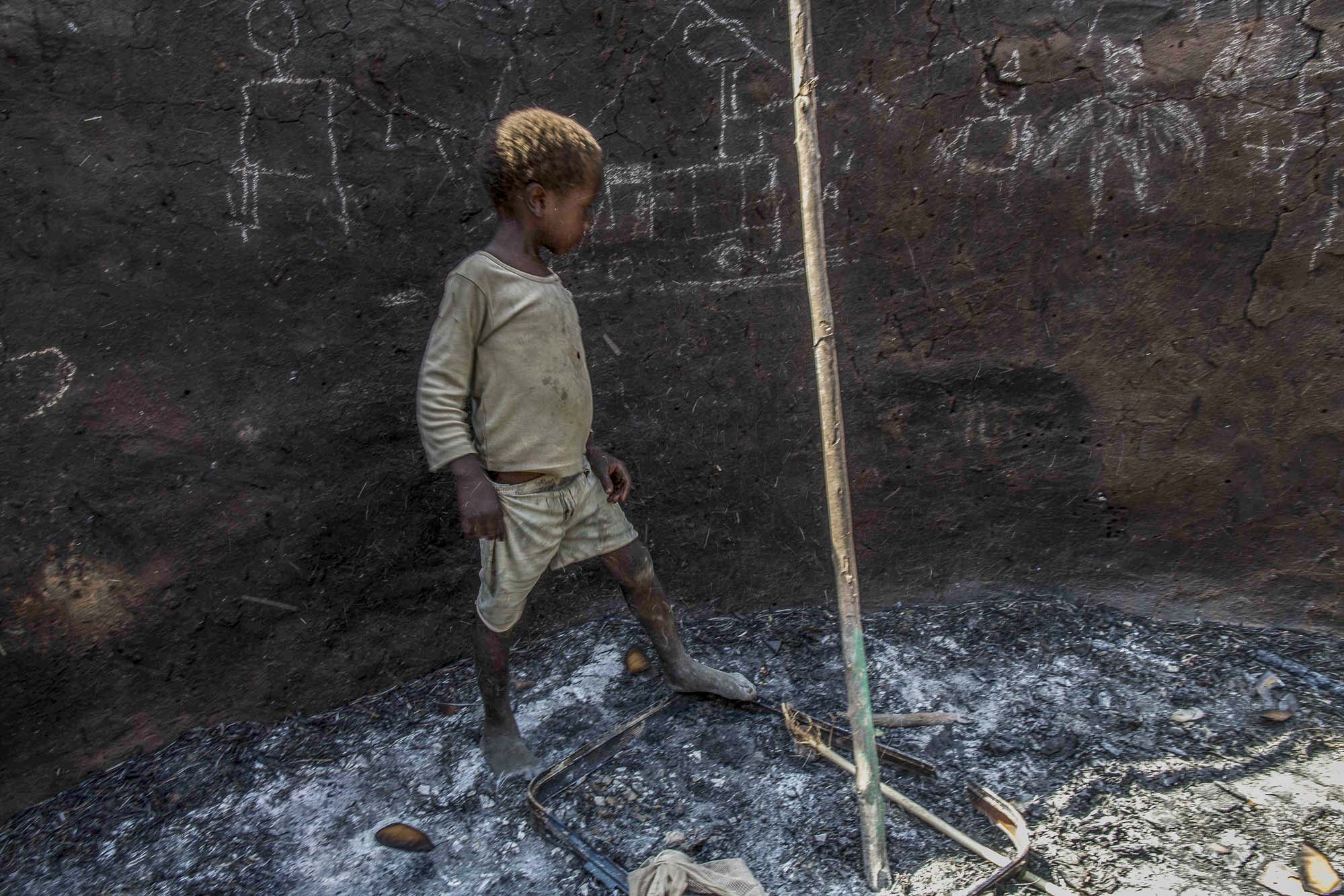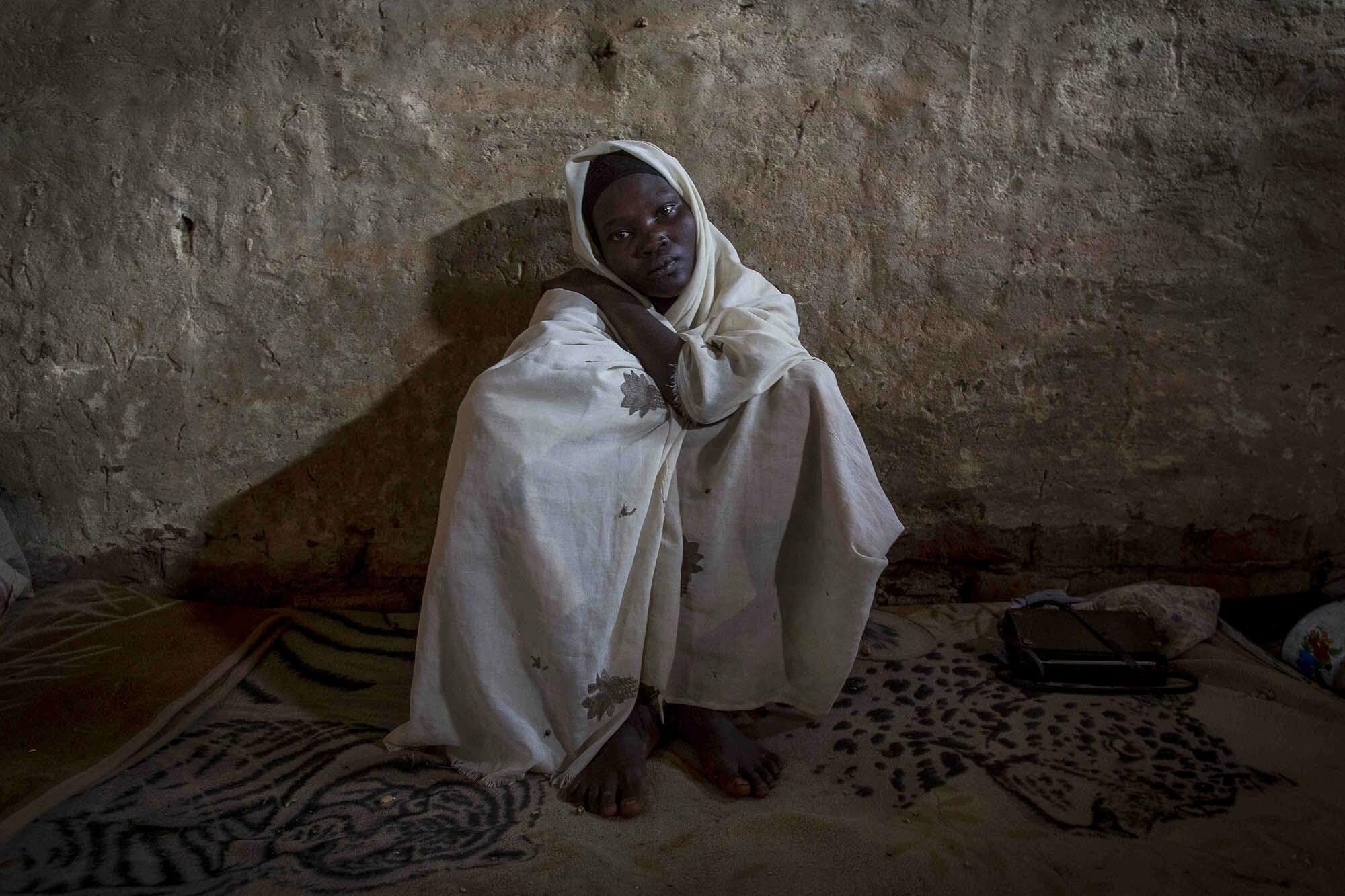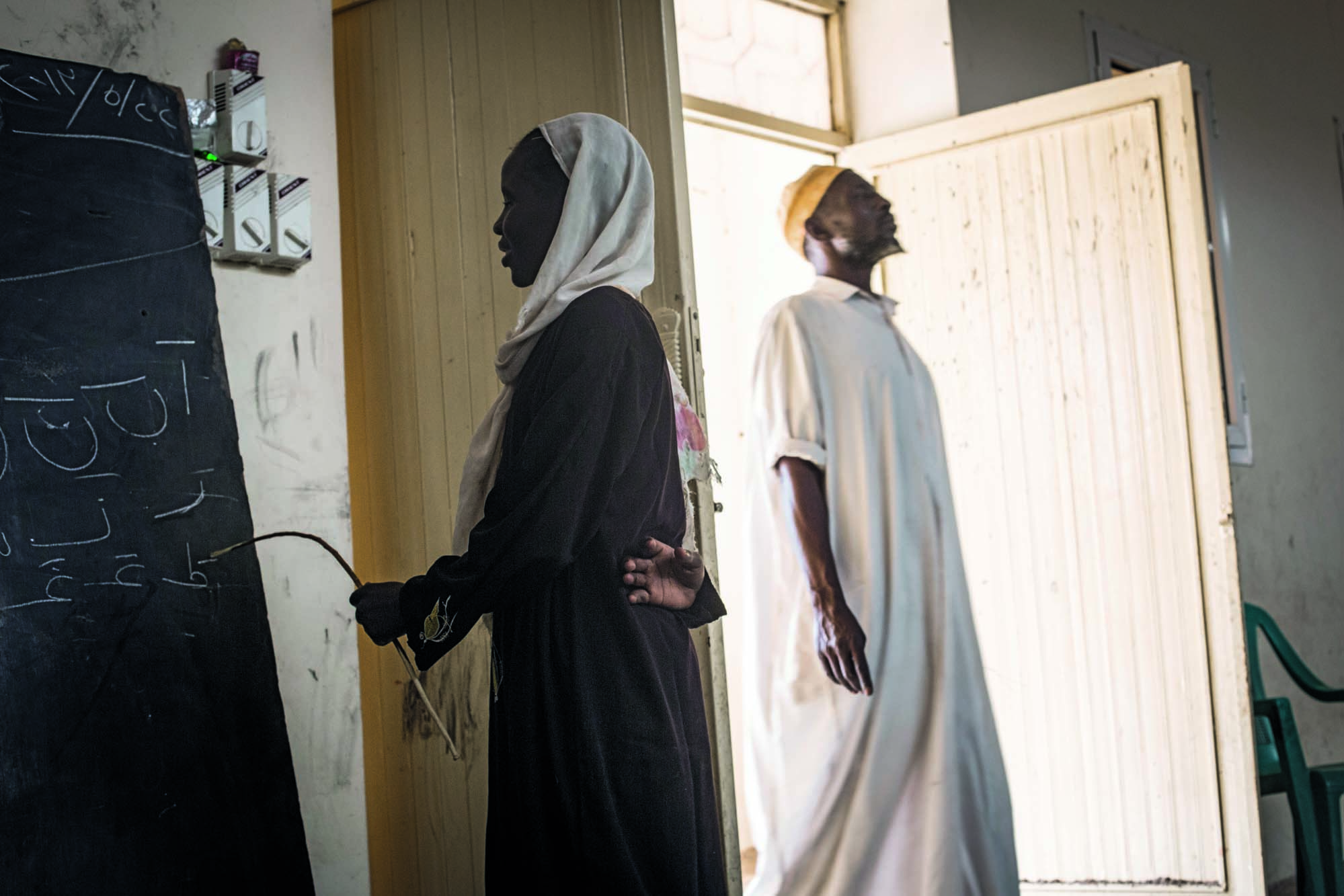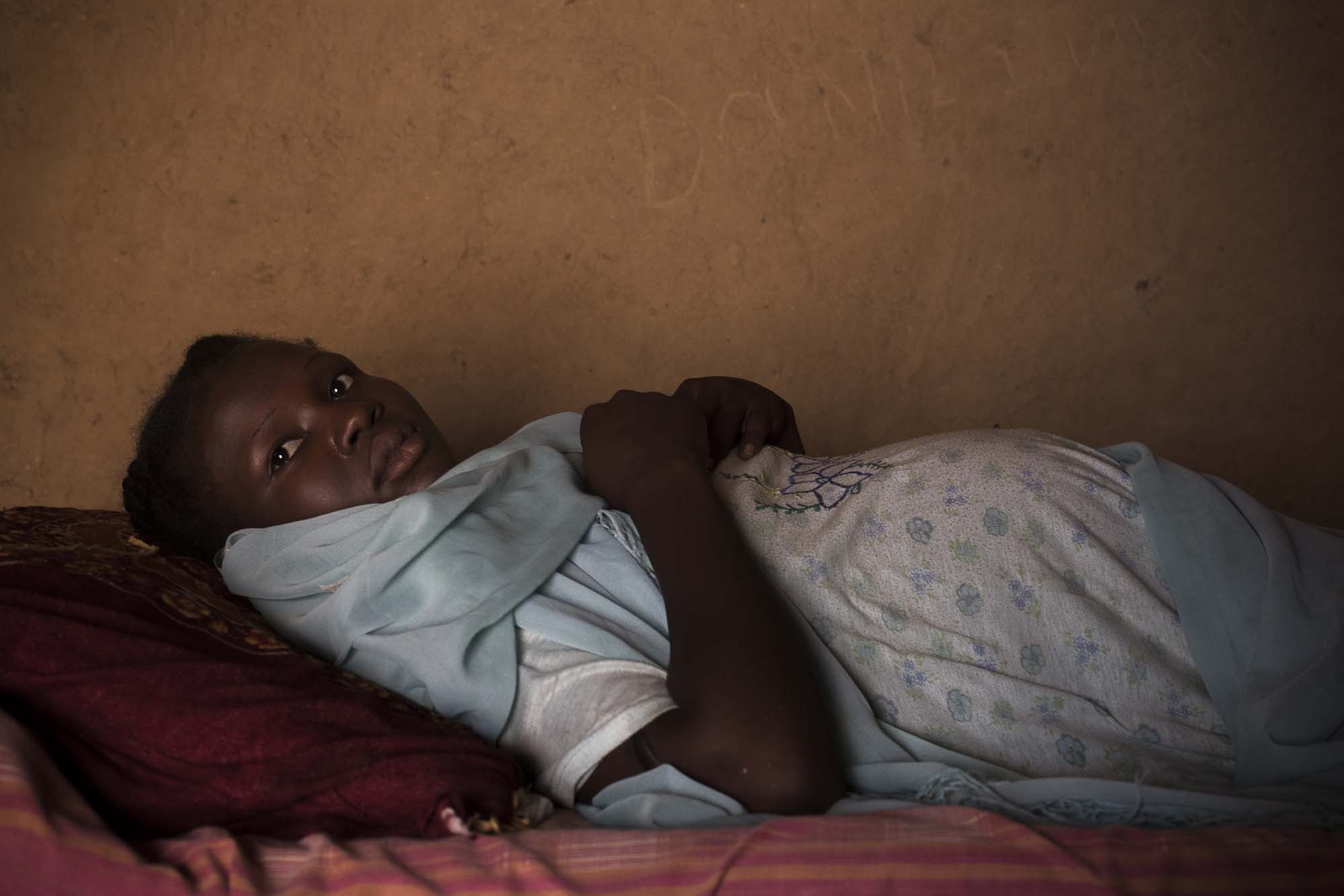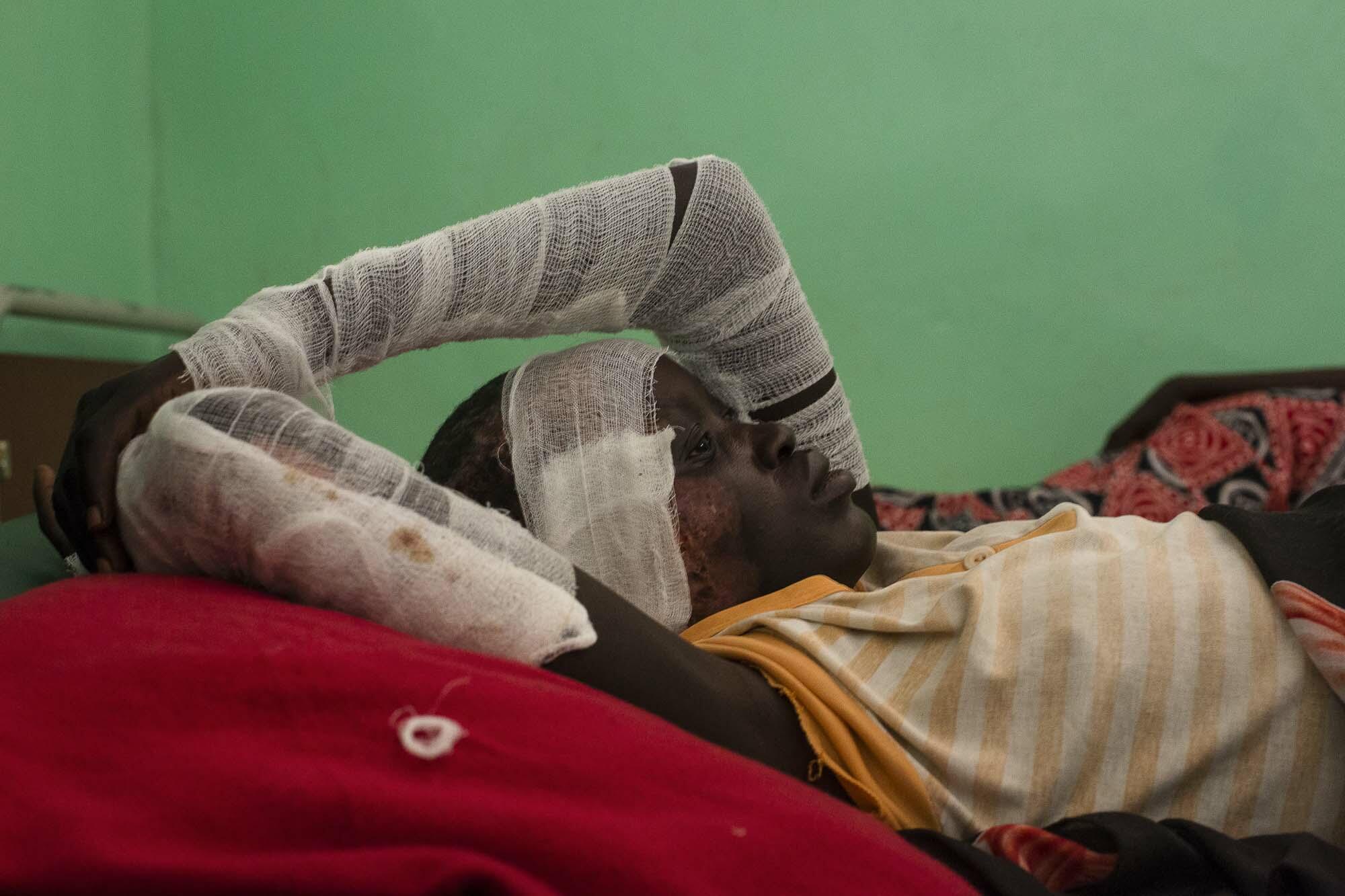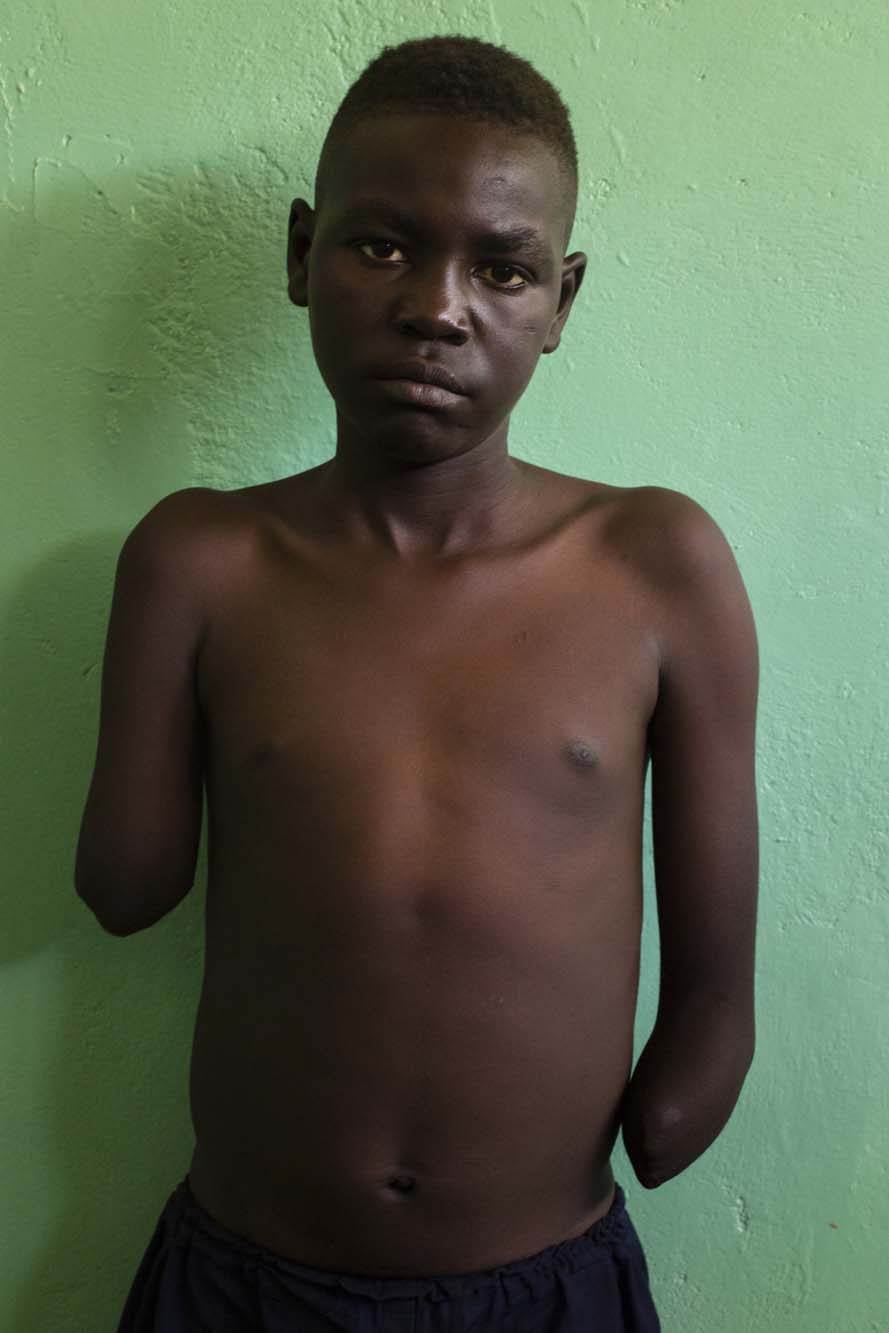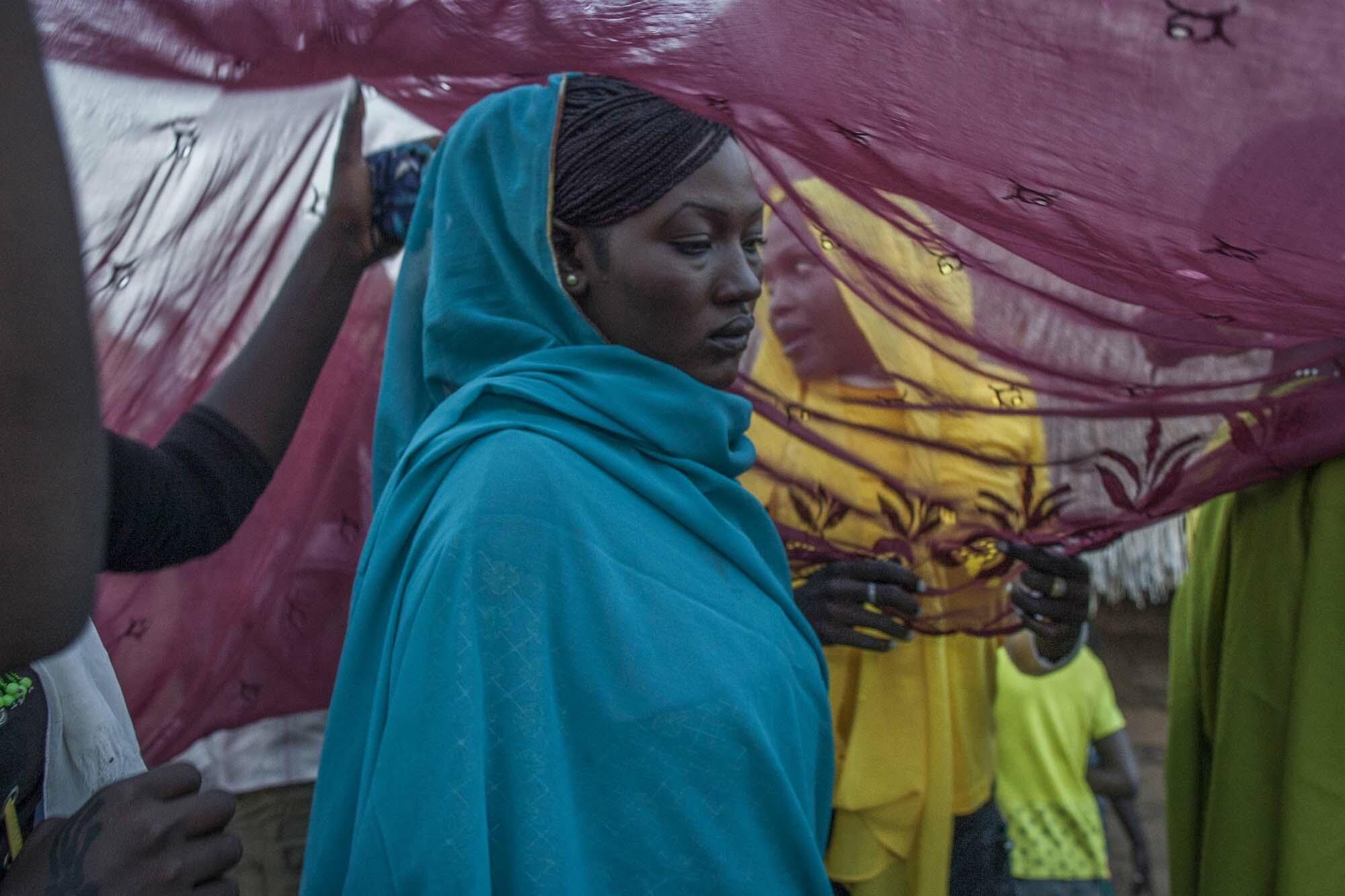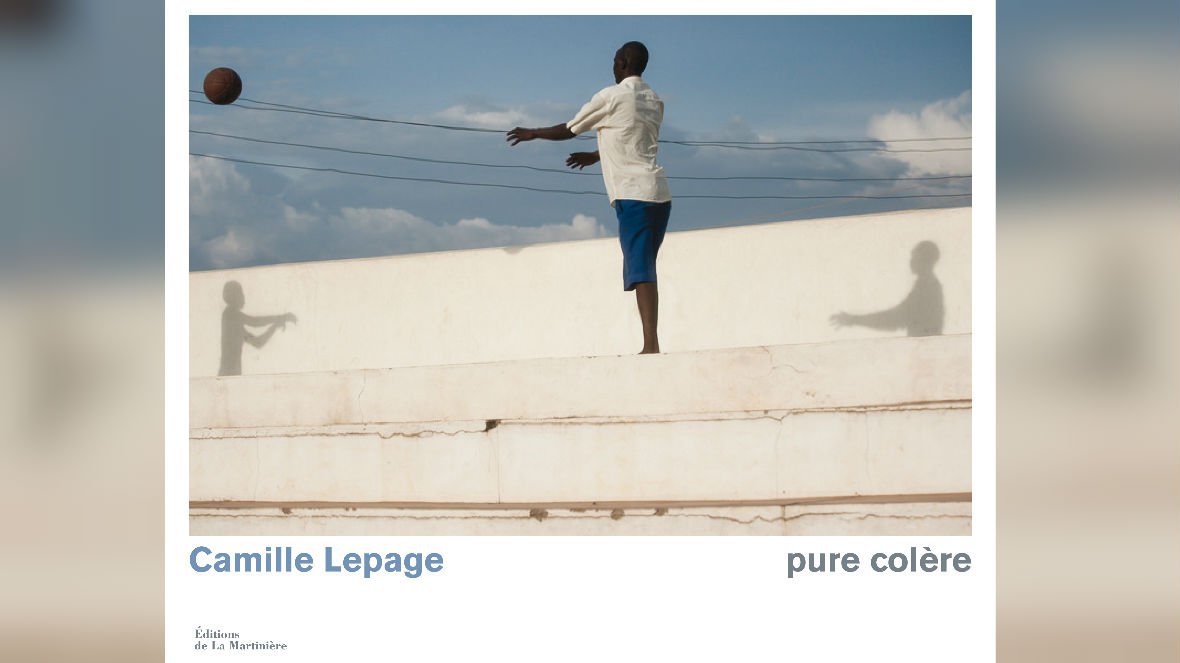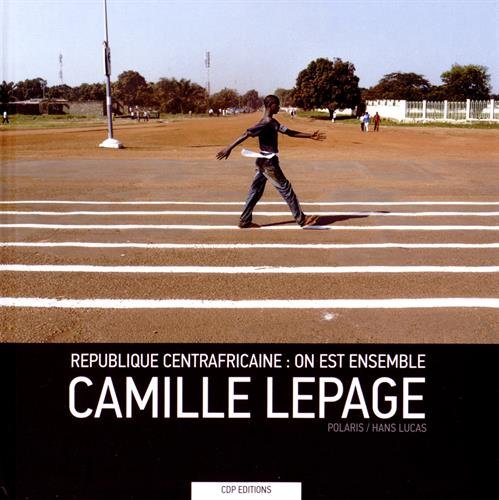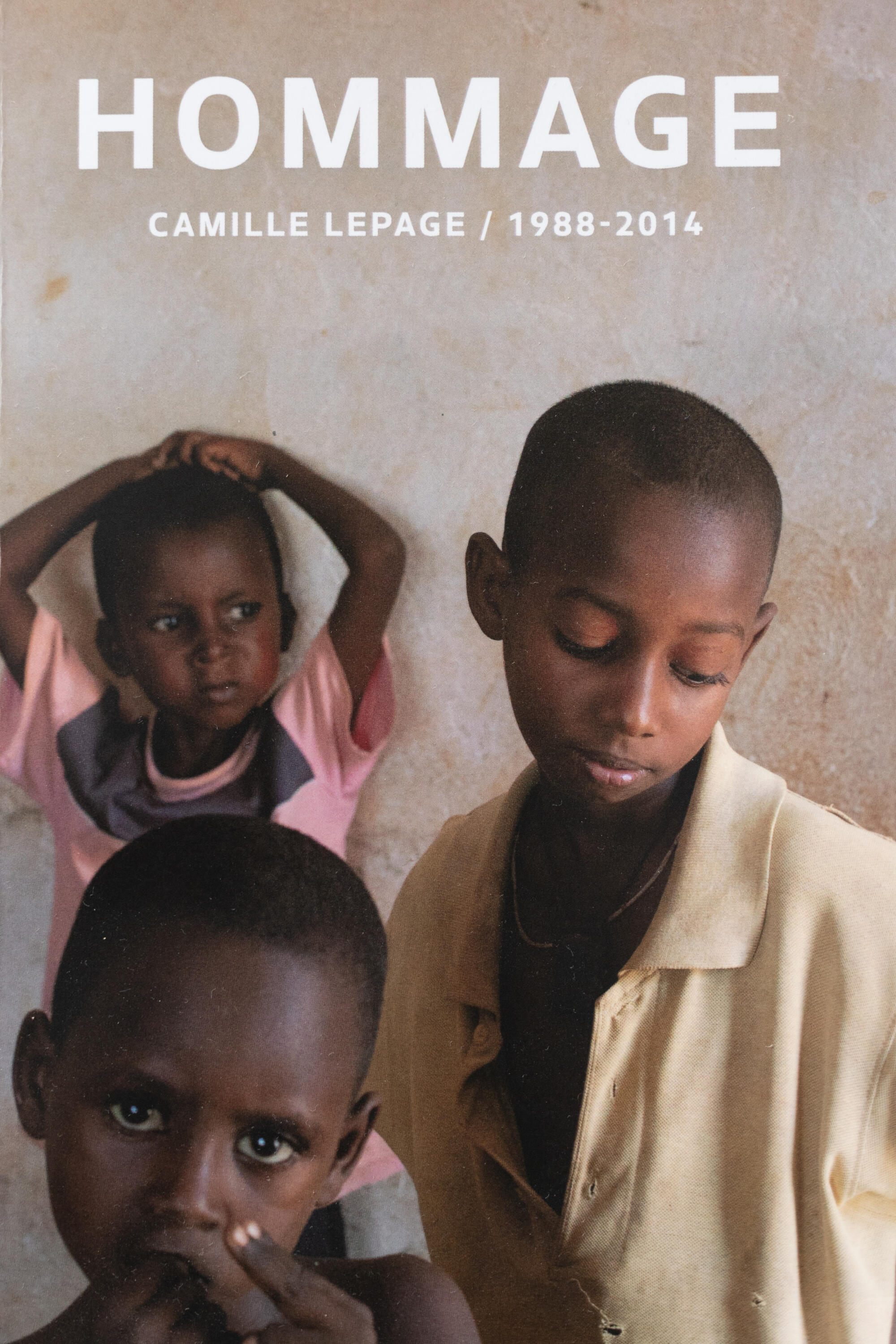You will forget me
Bashir and his government who want to eliminate us must fall! ‘ exclaims Rajab Said Jafer, commander of the rebel group, Sudan People’s Liberation Army North (ALPS-N). For several decades, the Nuba people have been living in fear. According to him, their government is simply trying to eliminate it. Traditionally, Noubas, Christians, Muslims and animists live peacefully, far from modern civilization. Indigenous African people of remarkable beauty, bi-joux and scarification decorate their naked bodies while their festive culture enlivens the long evenings in the valleys of the South Kordofan Mountains. By its etymology, “Sudan” means “black people” and represents a land of Africa.
After the departure of the settlers, in 1956, and despite ancestral African roots still present, an Arab elite from the north of the country imposes itself on the government and now claims membership in the Arab world.
In the 1980s, a change of government radicalized its politics and men in power no longer tolerate the origins and African traditions of certain tribes on its territory, especially that of the Nuba … From then on, Arabization began: the teaching of Arabic became compulsory, local dialects were forcibly abandoned, women and men were covered, and Arab culture was imposed in the region. The government is even accused of using slavery practices and abuses contrary to human rights. In 1985, as the civil war resumed for two years, the offensives between Khartoum and the rebel group ALPS intensified. In the face of the discrimination and oppression that is raging in the region, the commander of ALPS, Yousif Kuwa calls the Nuba to join his ranks, in favor of a unified Sudan and in peace. 20 years of relentless war ensued.
It was only in 2005 that a ceasefire marks a pause in this endless conflict. Under international pressure, Sudan agrees to grant independence to southern Sudan, the neighboring Nuba region. This division will be by popular consultation. The fate of other regions, including South Kordofan, which were also torn apart by the war, will be decided later. In the meantime, the Nuba are living in peace again with a regional coalition government. It flushes the party of the National Congress led by Ahmed Haroun, former governor of Darfur and accused of war crimes and crimes against humanity by the International Court of Justice, and the political branch of the rebel group, the Liberation Movement Sudanese people, headed by Abdelaziz Al-Hilu. A political alliance hailed by the international community which, to its great surprise, works in harmony.
In May 2011, tensions reappear as Ahmed Haroun announces his victory in legislative elections. Result questioned by local communities and the opposition party. On June 5, 2011, following these controversial elections, Nubas’ apprehension resurfaced as the Khartoum Regular Army, also known as the Sudanese Forces Army (SAF), launched the first bombings in civilian areas. Explosions are heard daily in the mountains. On-site humanitarian workers are evacuated urgently. They will not come back. The Sudanese government is barring access to this region from humanitarian aid and journalists. The Nuba are alone against the Sudanese bombers. They take refuge in the caves of South Kordofan Mountains. Famine is threatening, but they survive through small crops and the leaves and seeds of trees. The opposition political movement has taken up arms after seven years of truce and is trying, without external support, to repulse again its longtime enemy. It takes the name ‘Sudanese People’s Liberation Army – North’ to differentiate itself from the army of its new neighbor South Sudan, which has kept the name of the Sudanese People’s Liberation Army.
Nearly two years later, the situation worsens and famine sets in as harvests are getting leaner. Without humanitarian assistance or media coverage, this Darfurian-style war is taking place in silence, punctuated by the roaring bombing.
Camille Lepage, may 2013

